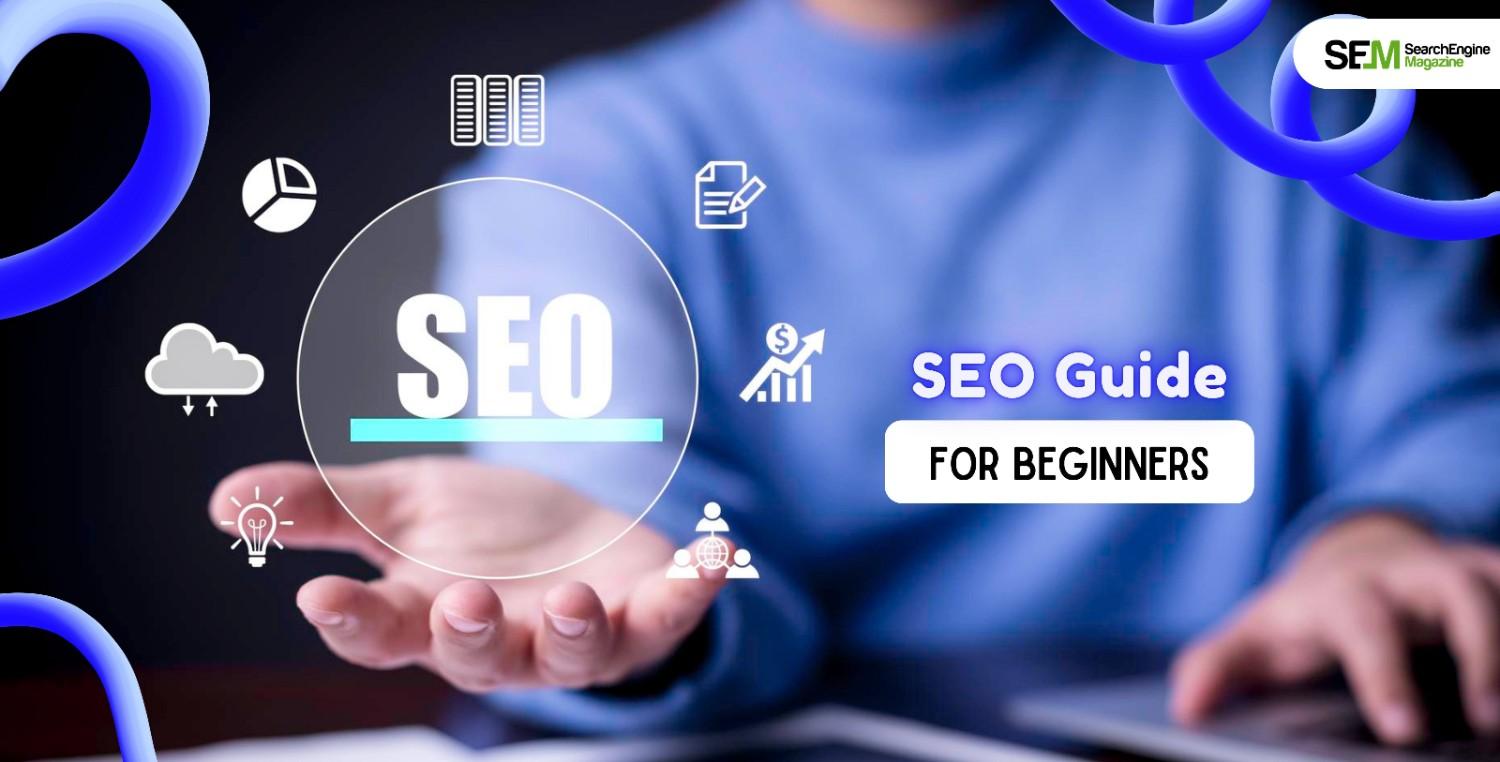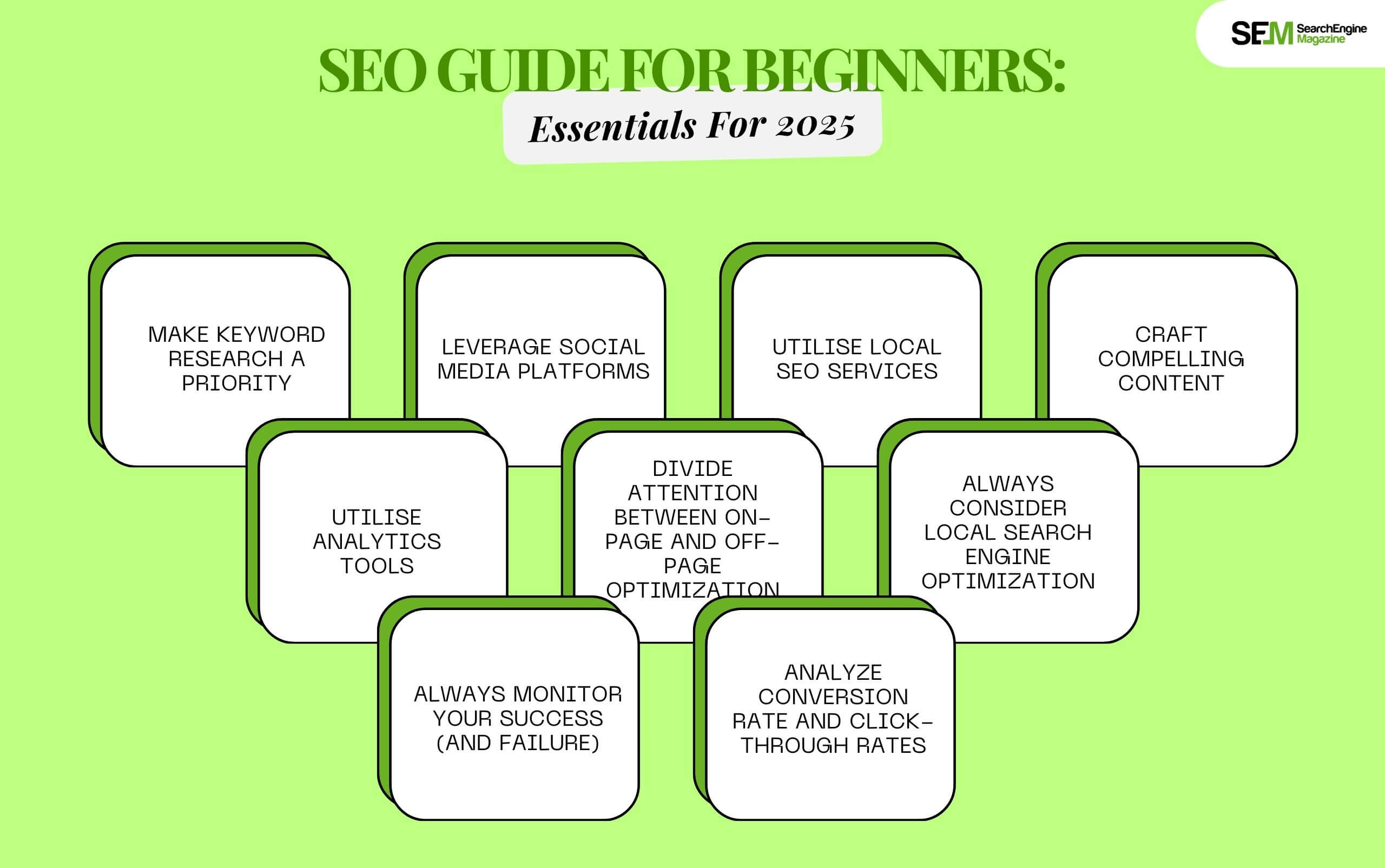How To Unarchive A Story On Instagram? A Step-by-Step Guide
Jan 28, 2026

Jan 28, 2026

Jan 27, 2026

Jan 24, 2026

Jan 23, 2026

Jan 22, 2026

Jan 22, 2026

Jan 21, 2026

Jan 21, 2026
Sorry, but nothing matched your search "". Please try again with some different keywords.


SEO can tend to feel very overwhelming when you are just beginning your journey in the digital marketing landscape. With endless guides and advice online and too much jargon, it gets difficult to find out where to start.
But here is the truth: understanding and mastering SEO (at least the basics) is so much simpler than you tend to think – and why not? A SEO guide for beginners can easily transform your knowledge on optimisation and transform your site in the process.
There are websites that have increased their total organic traffic from a hundred to more than 10 K. From driving your signups to increasing your organic traffic, you need SEO! It is not really magic – SEO only works because every search engine out there rewards content that adds value, helps users, and offers an excellent user experience.
Get these things right and you are 90% already there!
Moreover, SEO basically boils down to a few areas:
So, in this guide, I’ll talk about the basics and touch upon some other options that you can explore once you are ready. Stay tuned!

Before I discuss the SEO guide for beginners with a focus on the essentials for 2025, let’s look at why SEO matters!
So, there are primarily three reasons that make learning SEO basics worth your time and money:

If you want to rank for relevant keywords in your niche, then you have to start with targeting certain keyword clusters on your website.
SEO includes writing and publishing people-first, reliable, and helpful content on topics that can add value to the lives of your audience. Also, it includes optimising your content for different search engines in a way that potential customers can get answers to relevant queries – the idea is to ensure your website appears on search results when your target audience looks up queries in your niche.
Moreover, you can also experiment with different content types such as case studies, whitepapers, blogs, landing pages, and ebooks. Additionally, SEO focuses on boosting the technical performance of your website – the idea is to improve the user experience. This can include elements like accessibility, speed, mobile-friendliness, and security.
The more your website is user-friendly, the better the user experience. Plus, it is more likely to rank high for relevant keywords in search results.
In this context, you should remember that SEO isn’t just a one-time effort. It is a part of the ongoing process. Since algorithms change frequently, strategies that are now effective might stop working tomorrow. So, it is vital to produce new content consistently, update existing content, and optimise your site’s overall performance continually.

While the basics typically stay the same, there are some essentials that are absolutely going to stand out in 2025. So, I’ve tried to do a comprehensive overview of these SEO essentials for the year:
Identify phrases your target audience uses when searching for websites like yours. Use these keywords throughout your website and in social media posts.
Choosing the right keywords is crucial to your website’s success. Look for keywords with high search volume but low competition. Incorporating these into your content can draw more attention to your website.
Lastly, remember to update your keywords based on trends. Keywords can change, so keep your content relevant by staying on top of these trends. This ensures continued visibility and interest in your website and everything on it.
Social media is essential for spreading the word about your website. Use platforms like Facebook, Twitter, and Instagram to engage with your audience. Share posts that include keywords relevant to your niche, ideal for increasing your visibility.
Create shareable content to reach a wider audience. Encourage followers to share your posts with their networks. This approach amplifies your website’s online presence, attracting more attendees.
Remember, consistency is key on social media. Use eye-catching images and hashtags to make your posts stand out.
To increase your blog’s visibility locally, consider hiring a full-service San Diego SEO company. These experts can help your blog appear in local search results, making it easier for nearby attendees to find you. Local SEO services are vital for drawing in a hometown crowd.
Working with a reliable SEO company ensures that your website gets noticed by the right people. They know how to make your website or blog appealing to the local community. This targeted approach is a powerful way to boost attendance.
Crafting compelling content is key to capturing your audience’s attention. Use stories and engaging visuals to make your website stand out online. Incorporating digital solutions can make content more interactive and shareable.
Keeping the content concise and to the point ensures it’s easily understood. Focus on the benefits of following your website and how it solves a problem for your audience. Using digital solutions like video highlights or engaging infographics can greatly enhance appeal.
Now that you already have a fully operational social media profile and website with a good number of followers, it’s time to use other tools. One of the most common examples is Google Analytics, but you might also use other built-in analytics tools. These help you keep track of all your social media platforms in one place.
In order to use Google Analytics, you will first have to identify patterns and trends. For instance, age, gender, location, or other factors influence your user.
This is the most important part of the entire article. Both on-page and off-page optimization are crucial when it comes to making the most of your SEO strategy. On-page SEO refers to efforts made on a particular website with a common goal: to enhance its performance. There is a huge spectrum of optimizations across various aspects.
On the other hand, off-page optimization refers to practices outside of the website. Some common practices in off-page SEO are link building, online directories, and social media marketing. Both on-page and off-page efforts need some common things to become successful, like unique content.
Local SEO is another great practice if you want to market your blog and make it more popular. To do this, you will first have to list your website on listing platforms and even in directories.
Secondly, the practice of using efficient keywords comes into being. Of course, this is the most obvious SEO activity, but in local SEO, it is particularly important. Don’t forget to implement variations in your keywords.
If you want to do something unique from your competitors, make use of efficient schema markup. Structured data markups help search engine bots comprehend your web page’s content.
SEO is a long-term strategy, which is why it is important to monitor your website at regular intervals. This is a step that can help you determine the potential improvement areas and work on them to make your blog more successful.
Organic traffic is the total number of visitors who visit your website by tapping on search results. It is a crucial metric that monitors your overall SEO strategy. Also, the organic traffic must climb in proportion to your overall search ranking increase.
Finally, let’s talk about calculating the conversion rate or the percentage of visitors that take a desired action on your website. In this case, they are likely to book an event ticket and even pay for it beforehand.
Another important thing is the click-through rate, which refers to the percentage of users that click on the link of your website. A higher CTR proves that your website is more relevant to event search queries and meets the intent of the searcher.
Barsha is a seasoned digital marketing writer with a focus on SEO, content marketing, and conversion-driven copy. With 7 years of experience in crafting high-performing content for startups, agencies, and established brands, Barsha brings strategic insight and storytelling together to drive online growth. When not writing, Barsha spends time obsessing over conspiracy theories, the latest Google algorithm changes, and content trends.
View all Posts

